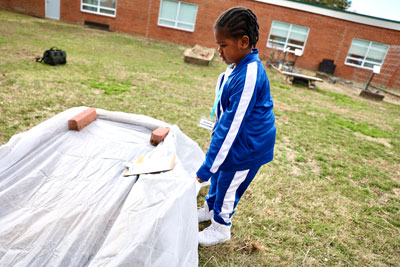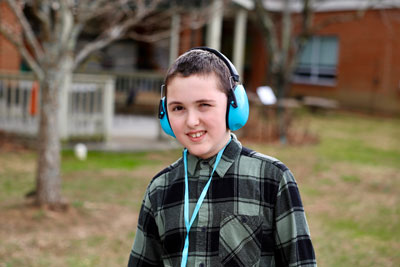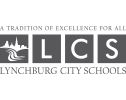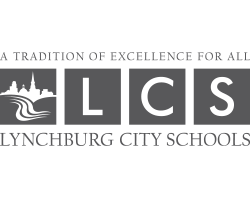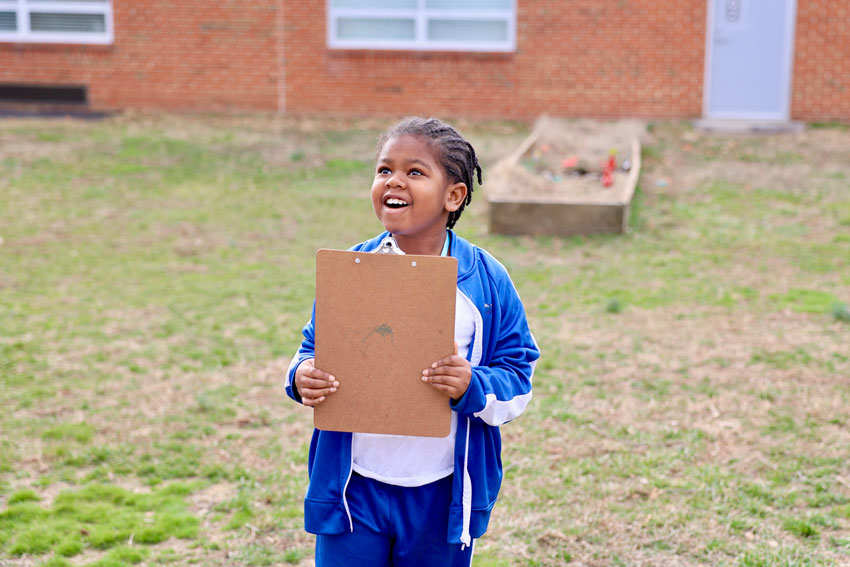
Bedford Hills Elementary School student Za' Chaun surveys the school garden, clipboard in hand, taking in the evidence of his work. He’s been tasked with covering the planter boxes with cloth to protect them from frost in preparation for the spring planting season. This afternoon has been an exercise in career exploration—under school volunteer and master gardener Kris Lloyd, Za' Chaun is learning what it’s like to be a professional gardener.
He’s not the only one trying his hand at a new skill. Za' Chaun’s classmates can be found passing out rulers for a teacher, scrubbing the floors with the custodian, manning the front desk with the secretary, organizing books with the librarian, and taking temperatures with the nurse. Each is paired with a school professional to get a taste of their job duties as part of a new Bedford Hills program designed by special education teacher Angelica Yerrington.
“The Apprentice Program has been created to instill curiosity among students about different professions. Bedford Hills Elementary believes it is crucial to educate students about the significance various jobs play in our community,” Yerrington said. “We hope that through this program, students grow in their knowledge of how jobs work, improve their social skills, and get excited about their future.”
Each month, Yerrington’s students experience a different role within the school, shadowing a teacher or employee for a portion of the day. Apprenticeship sessions simulate real-world workdays in structure; students clock in and out, perform job duties, and are evaluated by their supervisors. They even earn “money” that can be exchanged for prizes at the classroom “Reward Store.”

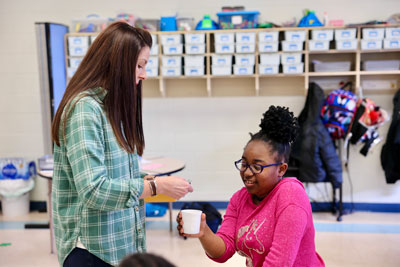
Students earn “money” after apprenticeship sessions, which can be redeemed for prizes.
“This is a great way for students to get out there and discover new things they can do. They learn useful skills, and it’s such a fun program,” said Lloyd, who shares wisdom from her 15 years of gardening experience with apprentices.
In addition to the social and vocational skills they develop, students’ experiences on the job connect classroom learning to real-world experiences. While Za' Chaun helps Lloyd place bricks on the planters to weigh down their cloth coverings, he recounts his knowledge of photosynthesis. Recently reviewed in science class, the topic is fresh in his mind as he tends to the garden.
In the library, students Dean and Ryan sort books, chatting excitedly when they see their favorite titles. The school librarian works beside them, offering words of encouragement and instruction.

Dean and Ryan learn what it’s like to work in a library.
Many students work in pairs during apprenticeship sessions, sharpening their teamwork abilities. Perhaps just as valuable as the tasks they’re completing are the social skills they’re learning. Some apprentices, like those assisting teachers or the school nurse, also interact with students in other grades as part of their duties.
“Creating a student apprenticeship program has been a fantastic addition to our student leadership opportunities and a real-world application of academics,” said Bedford Hills Principal Sherri Steele. “The students are excelling at their jobs and learning important soft skills for their future careers. I am grateful for Mrs. Yerrington's creativity in making this so successful.”

Mahogani helps with classroom management as a teacher’s apprentice.
When their tasks are completed, the apprentices convene in the classroom to discuss their experiences. Yerrington asks them questions about what they learned and reiterates key lessons about the workforce: the value of punctualtity, the importance of staying on task, and the role of supervisor feedback in career development.
After the recap, Yerrington distributes plastic coins to each student for a job well done. They also receive coins for good conduct in the classroom, but their “jobs” earn the most.
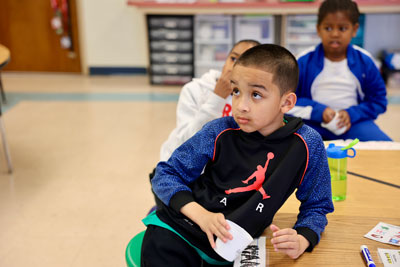
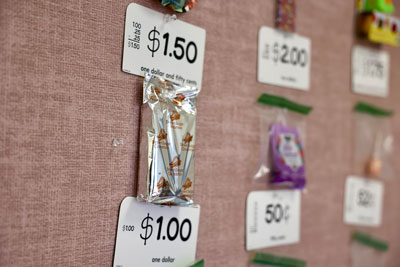
The “Reward Store” is full of incentives students can earn.
Students can choose to spend their money on a lower-priced prize, like a piece of candy, or save up for a more costly item, like sensory putty or novelty pencils. The class can even pool their earnings for a dance party. This system positively reinforces productive engagement in class activities while teaching key personal finance concepts, like earning, saving, and spending.
The students are excited about the prizes, but that’s not all that’s happening here, Yerrington says. They take pride in their work—she’s watched as they leave each apprenticeship session with a sense of accomplishment that grows every month.
“There’s a misconception that kids aren’t capable. That’s not true at all. They can do so many things,” Yerrington said. “It’s rewarding to watch their confidence grow.”
